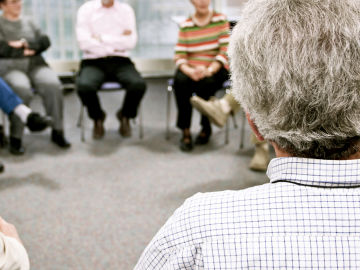The dialogue series of this spring has been concluded. At the end of an exceptional spring, citizens met to reflect on their experiences together. The 17 dialogues held for the fifth time on the same day around Finland also attracted a diverse group of participants of all ages and with different life situations this time around: young influencers, older people, immigrants, municipal and state employees, professionals in the education sector and people with physical disabilities. At the heart of many debates was the question of what we can learn from the crisis.
What did we learn from the lockdown?
This is a school that teaches you patience as you never know what is going to happen the next day. (1)
The early summer was characterised by the receding of the first wave of the coronavirus epidemic and the opening up of society. At this point, participants had a particular wish to talk about what we have learned from the crisis as individuals, communities and society.
Many find that they learned new things about themselves and their values during the lockdown. They are no longer afraid to be alone, they have grown more patient, and they see clearly how their normal daily life is filled with rushing about and discharging duties.
Families, work communities and NGOs have learned new skills and adopted new operating methods. Different practices of telework and electronic interaction are here to stay. Whereas telework used to be the exception, it is now becoming the new norm in addition to ‘contact work’.
Participants also praise the ability of society and the administrative machinery to be flexible and learn in a crisis.
Participants hoped that the insights gained during the lockdown would remain permanent. That they could keep their personal values clear on their minds, daily life would be less hectic, and there would be more compassion in life.
Going back to the hamster wheel and meeting family members like ships in the night would feel really bad. (2)
At the same time, participants brough up concerns over the positive changes being transient. Have we really learned anything from the crisis? Will we forget about the inequalities, and the social structures that perpetuate these inequalities, made visible by the crisis when daily life goes back to its old ways? Will we be able to prepare for potential new waves and other future risks?
The dialogues reveal the full range of experiences
Other people have been affected by the situation even if I have not. (3)
Taking part in the dialogue has strengthened participants’ experience of how different people from a variety of backgrounds experience the lockdown in very different ways.
Sharing your thoughts and hearing about other participants’ experiences in the dialogue provide a unique opportunity to imagine and encounter other people’s realities and the emotions they invoke.
Quotations:
(1) The Evangelic-Lutheran parishes of Tampere and the Diocese of Tampere
(2) Helsinki Cathedral Parish, Dialogues of Hope
(3) City of Lahti




